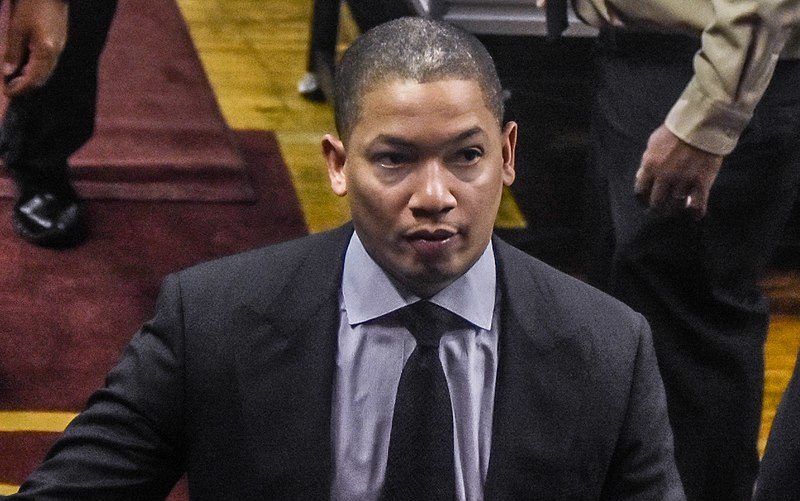From the vault March 2018 – As we set to enter a busy winter season at all levels across the country, a timely reminder of the importance of coaches managing their health and wellbeing.
With the recent news that Cleveland Cavaliers head coach Ty Lue is taking a break from the rigours of the NBA season with health concerns, it’s important for all coaches to reflect on the importance of managing their health and overall wellbeing.
Earlier in the NBA season, veteran Charlotte coach Steve Clifford took some 6 weeks away from the Hornets to manage some health issues and speaks candidly about this in his recent interview with ESPN’s Zach Lowe.
During the season, a combination of factors can work to negatively impact the general welfare of coaches and while the focus of the coach is always on the wellbeing of the athletes, taking time to manage your own health is crucial to longevity and success in coaching.
There are coaching adages as old as the game about the importance of coaches working hard, going the extra mile to improve their team and achieve “success”. “First there, last to leave”, “while you sleep, we work”, “work will win when wishing won’t” and many other sayings adorn the offices of coaches throughout the country espousing the importance of “the grind”.
Respected culture and leadership coach Tim Kight warns coaches about the dangers in “celebrating the grind” and has worked with legendary Ohio State University football coach Urban Meyer on striking a balance between working at a high level and maintaining wellbeing. This terrific article talks about the journey Meyer has taken to change his perception of what “hard work” is and finding a balance.
Recent studies have indicated that regular, quality sleep is one of the most important elements of high performing people. As coaches, we are aware that sleep is the number one element for athlete recovery and constantly work to ensure our players are getting appropriate rest. Google “importance of sleep quality” and literally thousands of articles and studies will pop up, many of which coaches may have presented to athletes. But are we practising what we preach?
With the Australian Under 18 Championships in Geelong just around the corner, no doubt there will be coaches burning the midnight oil, cutting film until 2am and up for meetings by 6.30am the next day. Nutrition will consist of coffee and stadium muffins and exercise will come from the elevated heart rate of game coaching! Coaches will wear this as a badge of honour and espouse they “just need to get it done.” But at what cost?
Tournament play is a particularly challenging environment to monitor and maintain wellbeing. With as many as eight games, scouting, practices, video, planning and review, the coach has a lot on their plate during tournaments. There simply is not enough time in the day.
Quality sleep? Forget about it! Food? I’ll just grab something on the way back from the stadium. Exercise? My focus is the team and we don’t have time. Hydration? I’m OK, I had six coffees today!
Sound familiar? We are all guilty of it and at times, this is no different during the season. Two practices a week, usually in the evening and coaches have come straight from work. Friday night game, battling traffic, again, usually straight from a long day at the office. A Sunday game follows and, of course your colleague asks you to watch her game to give some feedback. Then you want to watch the next age group – five hours later and your only day off has been spent in the stadium.
“But we love it!” “Wouldn’t have it any other way.” Passion and commitment to the craft are important and the nature of coaches will always see them go the extra mile to help their team, improve players and create a positive environment.
But a sleep deprived coach isn’t equipped to lead in a positive and enthusiastic way. A dehydrated coach does not have the sharpness of decision-making to help their team in the heat of battle.
Some elite professional coaches now employ people specifically to assist them staying healthy and manage areas such as nutrition, conditioning, flexibility and mindfulness. Los Angeles Lakers mentor Luke Walton is at the forefront of this, employing people to assist with the welfare management of the Lakers coaching staff.
Most coaches don’t have the luxury of resources to do this, but we can all make some subtle changes to the way we approach our coaching with a view to better managing health and overall wellbeing.
For volunteer coaches juggling full-time employment, family and other commitments, the challenges of maintaining a healthy balance is perhaps more difficult. Simple aspects such as ensuring enough sleep, staying hydrated, stretching when the athletes do and staying active during the season/tournament should all be part of the coaches “toolbox”.
Take a few minutes to do an audit on your “coaching wellbeing”. Can you identify some simple things you can change to ensure you are the best version of you with the season just around the corner?




Leave a Reply